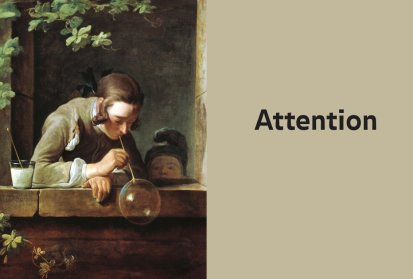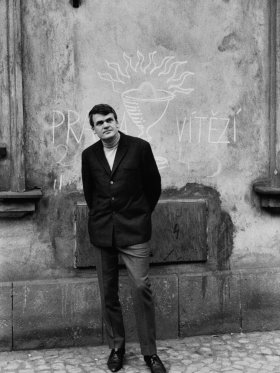Two conceptions of attention
Yves Citton, a leading author on the ecology and economy of attention, follows a path in this article that is not the usual lament about the scarcity of attention in the face of an overabundance of information. Moving towards curiosity and subjecting it to a political re-evaluation, Citton creates an alternative theoretical discourse that is no longer focused on the problems of the crisis and the scarcity of attention.
Over the last 30 years, discussions about ‘the attention economy’ have moved from the fringe of academic journals and artists’ projects to the mainstream of Netflix documentaries and moral panics. What, during the early 1990s, sounded like a strange idea in Georg Franck’s first formulations (attention circulates among us like a currency, and mass media operate as its banks), or like a crazy prophecy in Michael Goldhaber’s more provocative statements (attention might replace money as the main currency)1, now seems fairly obvious and banal. This is a most welcome change: gaining a keener collective awareness of the mechanisms and dynamics upon which our systems of communication (and our perceptions of the world) actually rest is a crucial first step, if one hopes to escape from the planetary death trap mediarchical capitalism is cornering us in.
These growing discussions have set in place what Kenneth Rogers calls an ‘attention complex’, which is to be understood as a complicated entanglement of multiple issues and different disciplines, but also as a bundle of connected interests and agendas (comparable to the ‘military-industrial complex’). As he rightly points out, this complex has been going through a major transformation over the past years – evolving from an original hypothesis of scarcity to a challenge in synthetic cognition2. Since Herbert Simon’s famous 1971 article3, almost everybody has theorised ‘the problem of attention’ as an issue of scarcity: too many things to see (watch, learn, know), not enough attention (time) – economics being traditionally defined as the optimising management of scarce resources.
Within such a paradigm, the dominant tone of the discussions has been anxiety-ridden, if not apocalyptic: the ‘crisis of attention’ – about which a founding publication by Jonathan Crary already warned us in 1999 that it had been a permanent feature of capitalism for more than a century – was approached in terms of deficit and deficiency, pathological and clinical (ADHD, burn-out), or social and moral (distraction, dispersion, Fear of Missing Out)4.
"The dominant tone of the discussions has been anxiety-‑ridden, if not apocalyptic: the crisis of attention was approached in terms of deficit and deficiency, pathological and clinical or social and moral."

Leonardo da Vinci, Annunciazione [The Annunciation], 1472 (detail) © Photo: Scala, Florence / Courtesy of the Ministero dei Beni e della Attività Culturali e del Turismo / Galleria degli Uffizi, Florence
Over the past decade, however, another aspect (often more discreetly present in the previous discussions) seems to be increasingly foregrounded: what if, instead of lamenting our ‘information overload’, one attempted to study, understand, practice, improve our capacity to develop a different type of attention, which would accommodate to the superabundance of information as an asset and a source of satisfaction, rather than being crushed by its curse? Coming from the literary field, in the early 2000s, Katherine Hayles defended the merits of what she called ‘hyperattention’ – a capacity to scroll superficially through a multiplicity of heterogeneous data with a 360° vision – as a fully valid alternative to our dominant vision of narrowly-focused ‘deep attention’, while Franco Moretti was developing a computerised ‘distant reading’ of very large corpuses, and Pierre Bayard, professor in literature at the University Paris 8, was provocatively teaching us ‘how to talk about books we haven’t read’, since a legitimate part of literary knowledge comes from the ability to situate a work within a landscape of publications we don’t have the time to read, but need to know (something about them) nevertheless5.
At stake is a conception of attention based on synthetic cognition rather than analytical focusing. While both aspects are in fact present most of the time in our daily mental gestures, putting the emphasis on one rather than the other has great consequences. It is my contention that the academic world greatly misunderstands the causes and strengths of what it disqualifies as ‘conspiracism’ by failing to read it as the result of a necessary (and potentially healthy) need to relocate punctual ‘facts’ within the bigger picture of social dynamics. ‘Conspiracists’ and ‘anti-conspiracists’ base their conception of ‘truth’ on putting emphasis on a different attentional mode: the former synthetically consider as true what fits within a big picture of social domination (too bad if one or two assertions fail the fact-checking test!), while the latter analytically consider as true what punctually refers to an actual fact that can be verified through authorised procedures (the overall meaning of such facts being left to the interpretations of ‘ideologues’)6.
The hegemony of (neo-)liberal thought over the past half a century has habituated us to analytically break down (political) situations into (legal) procedures in order to rearrange our (productive) relations so as to maximize (economic) growth, calculated along the interests of (financial) capital. Whether in terms of injustice, inequality or ecocide, this has legitimately raised many forms of resentment, on the Left as well as on the Right sides of the political spectrum. Both forms of resentment are rooted in the unsatisfied need to find accountability and responsibility for the global situation we find ourselves in. Their call for a comprehensive view of our situation is disqualified as ‘conspiracist’ from the point of view of an attention complex (neoliberally) biased towards an analytical definition of truth, to the expense of a more synthetic approach.
Insofar as it is strongly articulated with a certain conception of economics as the optimising management of scarce resources, this same hegemony has also habituated us to approach any problem in terms of a certain lack (want, shortage, deficit, deficiency), which needs to be analytically identified, in order to be remedied through an appropriate punctual (productivist) solution. By pushing us to focus on one problem after another, the attention complex prevents us from seeing that most of us – in the middle classes of the Western world at least live among a superabundance of resources, goods and services. Counter-ideologies promoting ‘sobriety’ and ‘degrowth’ are slowly gaining ground, but they require a fundamental reconfiguration of our mental infrastructures, overcoming the inertia of our currently hegemonic attention complex.
[...]





Share article